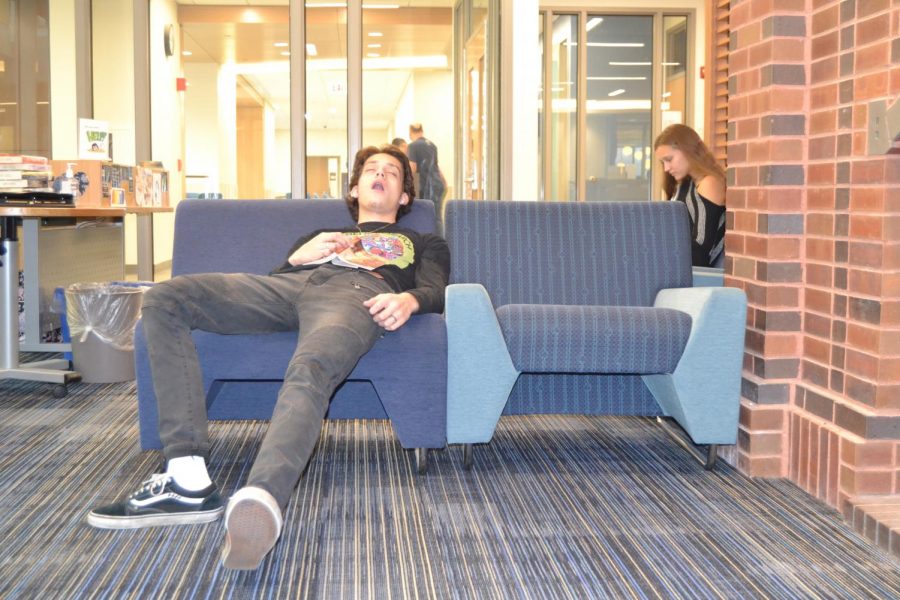Sleep deprivation is in style at New Trier
Competitive student culture extends to valuing school over sleep
December 1, 2017
New Trier’s highly competitive environment – which encompasses sports, academics and social status – causes students to compete over all kinds of issues, including sleep schedules.
It is not a misconception that most go home with a load of work, preventing us from getting a good night’s sleep and then talk about it the next day at school.
There seems to be more talk about getting less sleep than getting more sleep.
This competition seems to be related to the common misconception that a student’s amount of sleep and the amount of work he or she needs to get done are directly proportional.
“I think some people believe there’s a correlation between the amount of sleep you get and how smart you are because harder classes assign more homework, which takes more time. In reality, that’s honestly not true at all. Some people plan their time better and don’t procrastinate. If they have the chance to go to sleep early, why shouldn’t they?” said senior Julia Yang.
This social stigma about the amount of sleep one gets nightly is yet another factor in the constant competition between students of New Trier.
“I constantly hear conversations about sleep. It’s rare to hear them talk about getting more sleep than less. It’s weird that you would only see it at a competitive place like New Trier,” added Yang.
“It definitely feels like a competition to get less sleep when honestly everyone just wants more,” said sophomore Ava Palatnik.
On the other hand, sophomore Emily Rhee believes that both managing time and the classes students take are components in the amount of sleep you get.
“I think that the amount of sleep you get depends on how you manage your time and also the workload you have. Obviously if you take classes that are not as hard as others, you are going to have less work to do in the end,” said Rhee.
“I personally go to bed pretty late, between 11 and 12 every school night because of homework and extracurricular activities. If it were up to me, I would be in bed much earlier. Just an hour more makes a huge difference the next day. If everyone was honest, we’d find that more sleep is preferred,” said sophomore Lauren Spillane.
Some suggest that students feel almost validated by comparing sleep schedules.
“Sleep stigma seems to be something to show that we are smarter than others because our workload takes up a lot of our time. When I mention having 9 hours of sleep to my friends, it seems like I am not doing my work when I just manage my time,” said senior Shawn Patel.
Although the amount of sleep one gets supposedly correlates to their level of education, it is possible that it can also relate to one’s age – more specifically, their grade.
“The stigma has always existed, since freshman year and possibly even in junior high school. That’s a concern because it’s making kids believe from a young age that they should spend an excess amount on homework instead of sleeping at a decent hour,” said Spillane.
“Freshman year was almost worse because everyone thought they had to stay up late because that’s what all high school students did,” said Palatnik.
Rhee believes that all high school students who successfully manage hard schedules deserve praise.
“Obviously, they are doing something right if they are getting both their sleep and work done without having to sacrifice the other.”












































